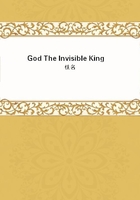
第33章
No man may play God to another; he may remonstrate, but that is the limit of his right. He must respect a confidence, even if it is purely implicit and involuntary. I admit that here the barrister is in a cleft stick, and that he must see the business through according to the confidence his client has put in him--and afterwards be as sorry as he may be if an injustice ensues. And also I would suggest a lawyer may with a fairly good conscience defend a guilty man as if he were innocent, to save him from unjustly heavy penalties. . . .
This comparatively full discussion of the barrister's problem has been embarked upon because it does bring in, in a very typical fashion, just those uncertainties and imperfections that abound in real life. Religious conviction gives us a general direction, but it stands aside from many of these entangled struggles in the jungle of conscience. Practice is often easier than a rule. In practice a lawyer will know far more accurately than a hypothetical case can indicate, how far he is bound to see his client through, and how far he may play the keeper of his client's conscience. And nearly every day there happens instances where the most subtle casuistry will fail and the finger of conscience point unhesitatingly. One may have worried long in the preparation and preliminaries of the issue, one may bring the case at last into the final court of conscience in an apparently hopeless tangle. Then suddenly comes decision.
The procedure of that silent, lit, and empty court in which a man states his case to God, is very simple and perfect. The excuses and the special pleading shrivel and vanish. In a little while the case lies bare and plain.
8. THE OATH OF ALLEGIANCE
The question of oaths of allegiance, acts of acquiescence in existing governments, and the like, is one that arises at once with the acceptance of God as the supreme and real King of the Earth. At the worst Caesar is a usurper, a satrap claiming to be sovereign; at the best he is provisional. Modern casuistry makes no great trouble for the believing public official. The chief business of any believer is to do the work for which he is best fitted, and since all state affairs are to become the affairs of God's kingdom it is of primary importance that they should come into the hands of God's servants. It is scarcely less necessary to a believing man with administrative gifts that he should be in the public administration, than that he should breathe and eat. And whatever oath or the like to usurper church or usurper king has been set up to bar access to service, is an oath imposed under duress. If it cannot be avoided it must be taken rather than that a man should become unserviceable.
All such oaths are unfair and foolish things. They exclude no scoundrels; they are appeals to superstition. Whenever an opportunity occurs for the abolition of an oath, the servant of God will seize it, but where the oath is unavoidable he will take it.
The service of God is not to achieve a delicate consistency of statement; it is to do as much as one can of God's work.
9. THE PRIEST AND THE CREED
It may be doubted if this line of reasoning regarding the official and his oath can be extended to excuse the priest or pledged minister of religion who finds that faith in the true God has ousted his formal beliefs.
This has been a frequent and subtle moral problem in the intellectual life of the last hundred years. It has been increasingly difficult for any class of reading, talking, and discussing people such as are the bulk of the priesthoods of the Christian churches to escape hearing and reading the accumulated criticism of the Trinitarian theology and of the popularly accepted story of man's fall and salvation. Some have no doubt defeated this universal and insidious critical attack entirely, and honestly established themselves in a right-down acceptance of the articles and disciplines to which they have subscribed and of the creeds they profess and repeat. Some have recanted and abandoned their positions in the priesthood. But a great number have neither resisted the bacillus of criticism nor left the churches to which they are attached. They have adopted compromises, they have qualified their creeds with modifying footnotes of essential repudiation; they have decided that plain statements are metaphors and have undercut, transposed, and inverted the most vital points of the vulgarly accepted beliefs. One may find within the Anglican communion, Arians, Unitarians, Atheists, disbelievers in immortality, attenuators of miracles; there is scarcely a doubt or a cavil that has not found a lodgment within the ample charity of the English Establishment. I have been interested to hear one distinguished Canon deplore that "they" did not identify the Logos with the third instead of the second Person of the Trinity, and another distinguished Catholic apologist declare his indifference to the "historical Jesus." Within most of the Christian communions one may believe anything or nothing, provided only that one does not call too public an attention to one's eccentricity. The late Rev.
Charles Voysey, for example, preached plainly in his church at Healaugh against the divinity of Christ, unhindered. It was only when he published his sermons under the provocative title of "The Sling and the Stone," and caused an outcry beyond the limits of his congregation, that he was indicted and deprived.
Now the reasons why these men do not leave the ministry or priesthood in which they find themselves are often very plausible.